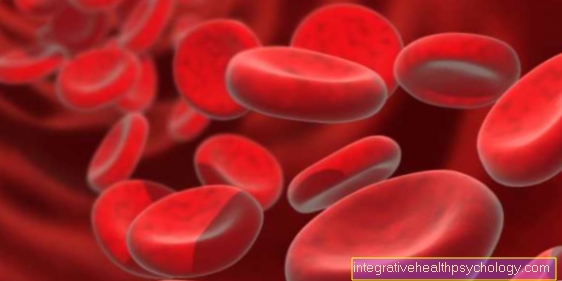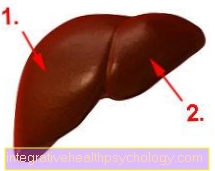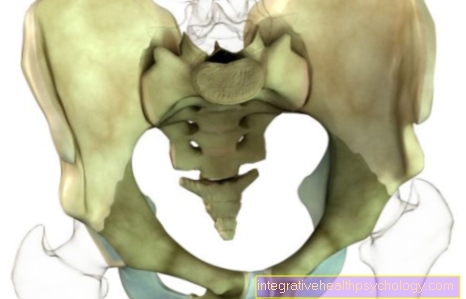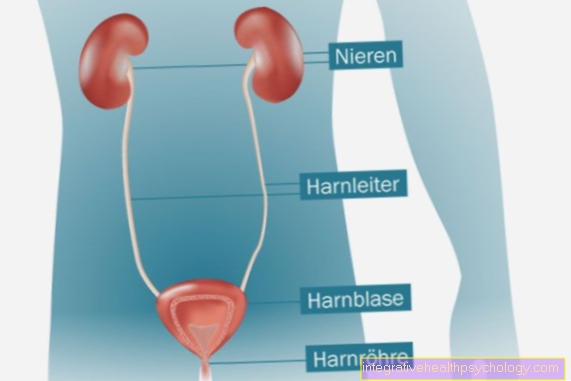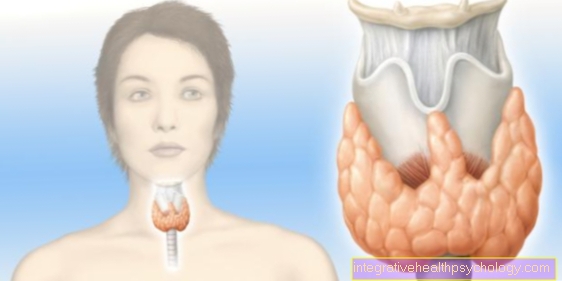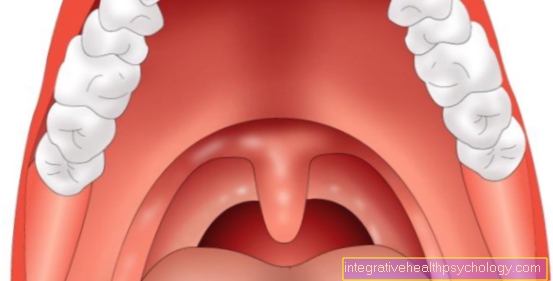Causes of a salivary stone
introduction
The salivary stone is a small, solid stone that can be found in all salivary glands in the area of the head and neck. It is formed from parts of the saliva and can lead to various symptoms (e.g. pain or inflammation of the salivary glands).
There are many reasons for its formation. Too little drinking is often the main reason for the formation of a salivary stone.

Overview of the most likely causes
There are various causes for the formation of a salivary stone.
- The main cause is usually too little. The reduced fluid supply makes the saliva thicker and more viscous, which promotes the formation of a salivary stone.
- Various diseases can also lead to a change in the composition of the saliva. Particularly noteworthy are cystic fibrosis, Sjögren's syndrome and the mumps disease that often occurs in children.
- Inadequate oral hygiene can also be a cause.
Low hydration
Insufficient fluid intake caused by drinking too little can promote the formation of salivary stones, as this changes the composition of the saliva. This becomes more viscous and is therefore difficult to drain into the mouth via the duct of the salivary glands. As a result, the mucous membranes dry out and the mouth becomes dry.
This can lead to various secondary diseases, as the saliva has an important and central protective and cleaning function in the entire mouth area.
Cystic fibrosis
Cystic fibrosis is also known as cystic fibrosis. This is an inherited metabolic disorder in which the body's mucus-producing glands do not work properly.
In contrast to healthy people, these form a very tough mucus that negatively affects the function of various organs. The composition and consistency of the saliva can also be changed by cystic fibrosis, which increases the risk of the formation of a salivary stone.
Also read our topic: Symptoms of cystic fibrosis
mumps
Mumps is an infectious disease that is caused by viruses. It occurs especially in children between the ages of four and fifteen. Adults can also be affected.
The disease manifests itself as severe swelling of the parotid glands on both sides. At the same time, it leads to a thickening of the saliva, as a result of which deposits form in the duct of the parotid gland. This leads to impaired saliva drainage and the formation of a salivary stone is promoted. This can then lead to severe inflammation of the affected salivary gland.
You may also be interested in this topic: Inflammation of the salivary glands
Drug side effect
Taking medications that reduce the flow of saliva can be a cause of a salivary stone.
Drugs with a dehydrating effect are to be mentioned, as they reduce the water content of saliva and thus its ability to flow. Particularly noteworthy are diuretics. Other drugs for allergies or depression can also negatively affect the composition of saliva.
More on this topic: Antihistamines- the drugs for allergies
Antidepressants
Antidepressants are drugs that are used to treat depression.
A dry mouth is often observed when taking them.This means that the mucous membranes are not sufficiently wetted with saliva. As a result, teeth can be damaged and salivary stones can form.
Sjogren's syndrome
Sjogren's syndrome is a disease in which the own immune system attacks and damages the body's own cells and tissues. The main distinguishing symptoms are dry eyes, a dry mouth and arthritis.
At the same time, there is often an inflammation of the salivary glands and the glands in the head and neck area. This can be triggered by a saliva stone due to the reduced saliva production. Sjögren's syndrome is treated symptomatically, with saliva substitutes and measures to promote salivation (e.g. sugar-free candies) being used.
You might also be interested in this topic: What can you do with dry eyes?
Editor's recommendations
- Salivary stone - you should know that!
- Symptoms of a salivary stone
- This is how you can effectively remove salivary stones
- Salivary stone of the parotid gland
- Home remedies for salivary stones







